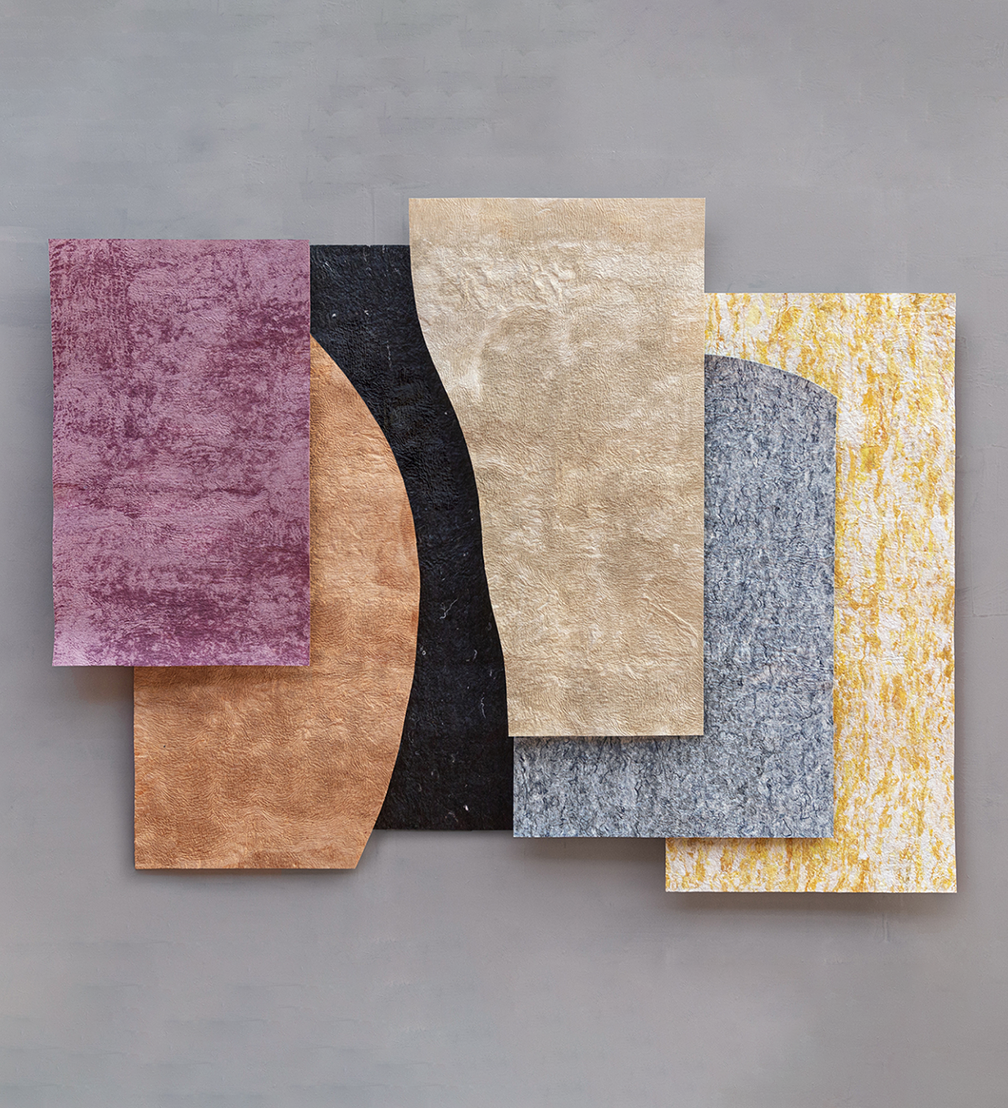
On Friday, May 24, the winners of the National Design Award of Latvia (NDAL) 2024 were announced at Rīgas Cirks, honouring the best design works in five categories: products, services, communication, environmental, and digital solutions design. The Grand Prix and the prize of 2000 euros from the Ministry of Culture were awarded to designers Sarmīte Poļakova and Māra Bērziņa for the biotextile Pre-Loved. The jury also awarded five special recognitions, and the Latvian Patent Office also presented their award.
«Design is a problem-solving competence that uses design methods and aesthetics to integrate people into the development process and the solutions themselves. When we talk about the responsibility of design, the design phase accounts for around 40% of all accessibility issues in artefacts. Design, with science and engineering, has the lever to support and create circularity as well as climate positivity. Hence the challenges we face and which design is facing start with sustaining a human, flora, and fauna-positive climate, with the threats imposed on every citizen by the attacking war of Russia against Ukraine, and end with the changes related to the accelerated progress of AI. With this in mind, the ethical dimension of design is becoming more and more relevant,» the final jury stated.
In this light, the evaluation of the entries, and in particular the final decision on the Grand Prix, was the subject of a passionate debate among all the jury members. Chaired by Regina Hanke, the jury discussed the full bandwidth of possible perspectives on the diverse and inspiring projects handed in. «The decisions we took in this competition did not come naturally; they were driven by the quality of the artefacts and the challenges not only for Latvia but also for Europe and our living environment,» said Regina Hanke.
Winners of the National Design Award of Latvia 2024
Grand Prix and product design
Pre-Loved biotextile
Authors — Sarmīte Poļakova and Māra Bērziņa. Contractor — Studio Sarmīte.
«Being just environmentally friendly is not enough; these biotextiles connect the dots between waste management and industrial design. They show how to reweave the future and redefine aesthetics in multiple sectors, from fashion to interior and product design,» states the jury. «In a world where the overproduction of the furniture, fashion, and textile industries is being debated, turning the spotlight on biomaterials and encouraging positive thinking about the textile industry sends an important message for the future of design. We, as a jury, concluded that the Pre-Loved textiles have a positive future outlook for Latvia and shed a promising light on the potential of design.»
Pre-Loved biotextile is a new, sustainable material made from recycled textile fibres and suitable for fashion, interiors, and product design. The durable, non-woven material stands out for its high design and aesthetic qualities, as well as its recyclability. Pre-Loved biotextile can be broken down so that its fibres can be used again. The designers have created their own collection of product designs and collaborated with manufacturers and designers (Nat-2 for shoes, Been London for shoulder bags, Hirsch for watch straps). A particular highlight was the collaboration with Latvian designer duo Mareunrol’s, who created two sizes of vests from the Pre-Loved biotextile. Read more about the material here.
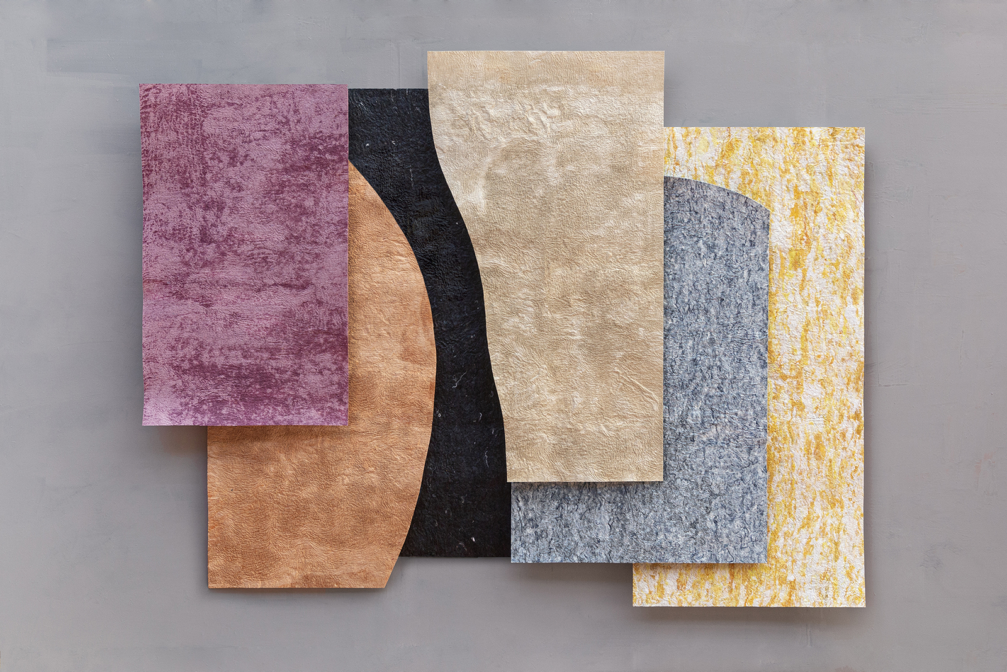
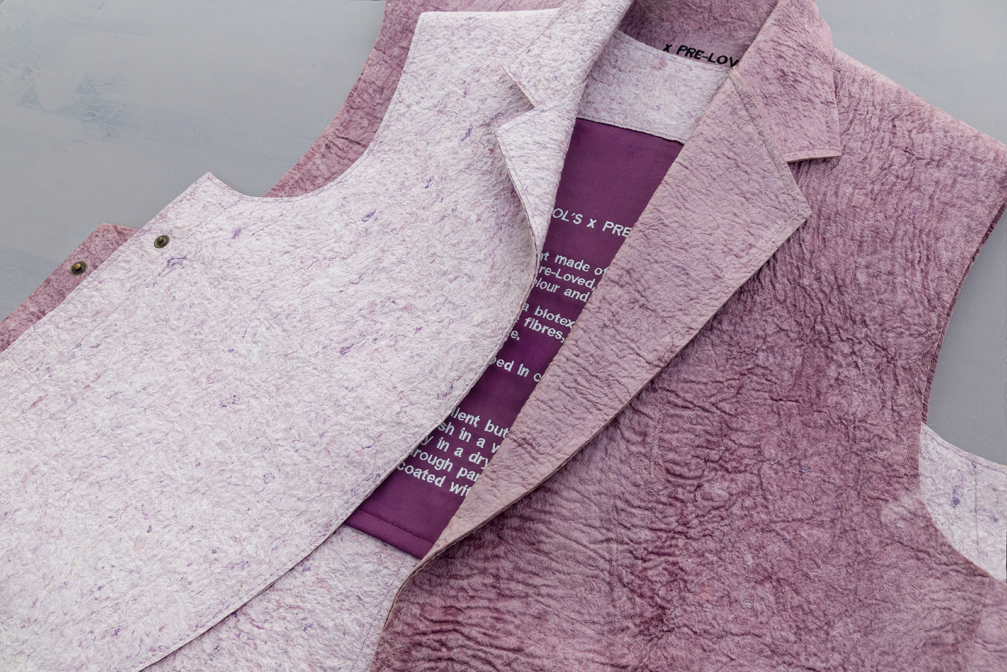
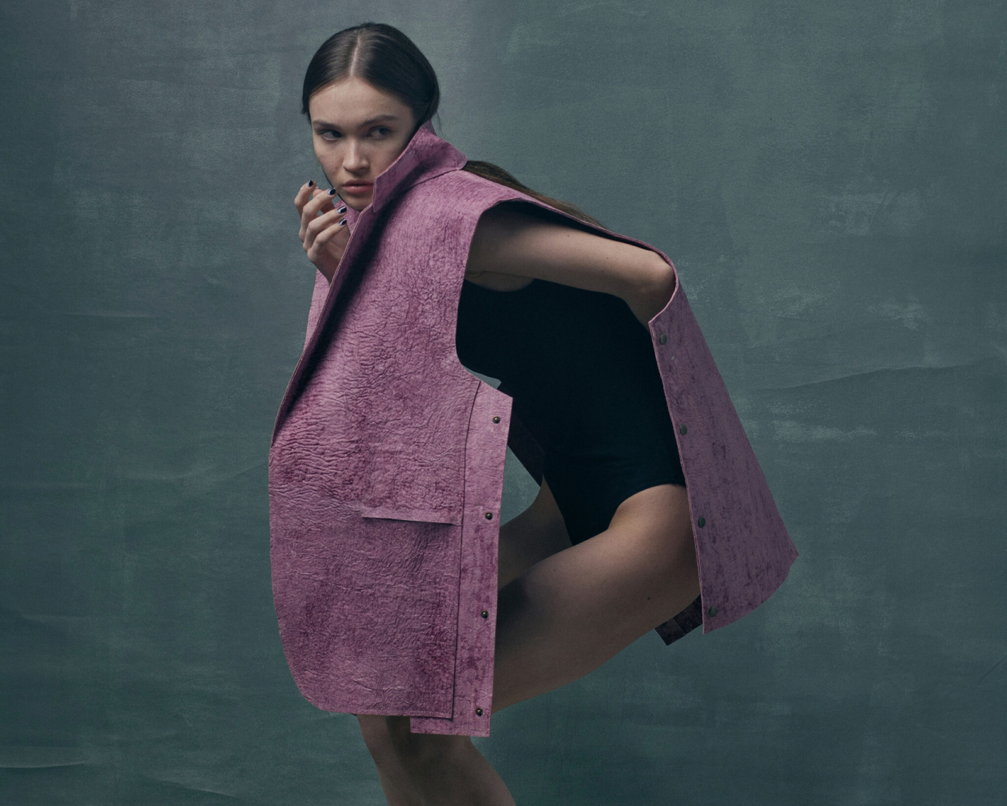
Communication design
Riga Summer of Courage and Joy 2023 campaign
Authors — Valters Kalsers and NGO Mākslas Birojs. Contractor — Riga City Council
«This project embodied a bold and contemporary visual language. Through co-creating with the local communities, it celebrated the diverse neighbourhoods, and yet still managed to foster a sense of unity throughout the entire campaign. The versatile identity of the campaign seamlessly transformed across various forms and contexts, ensuring a cohesive and dynamic representation of the multilayered cultural history,» stated the jury.
For the second year, the Riga Summer of Courage and Joy cultural programme was held in the capital, inviting people to explore the city’s neighbourhoods, meet their neighbours, and enjoy a diverse range of contemporary cultural events. This year, the Riga Summer of Courage and Joy communication campaign highlighted the uniqueness, history, and culture of each neighbourhood. The graphic design symbolically incorporated the neighbourhoods’ identifiers, such as the Zolitūde Hippodrome, the Čiekurkalns water tower, the Tornakalns railway bridges, and the blue spring flowers of the Great Cemetery in Brasa.
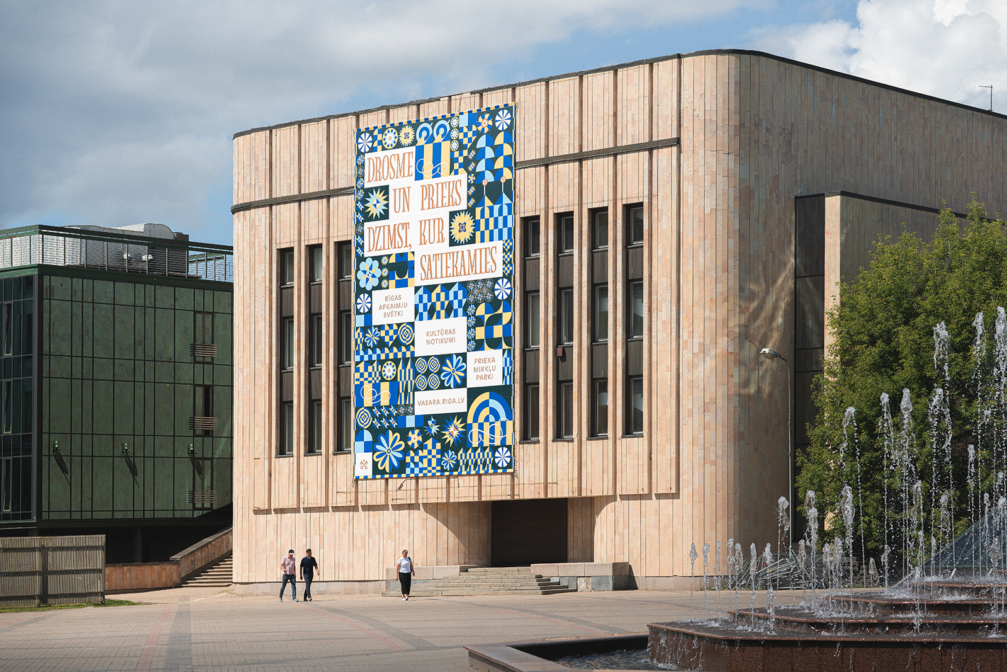
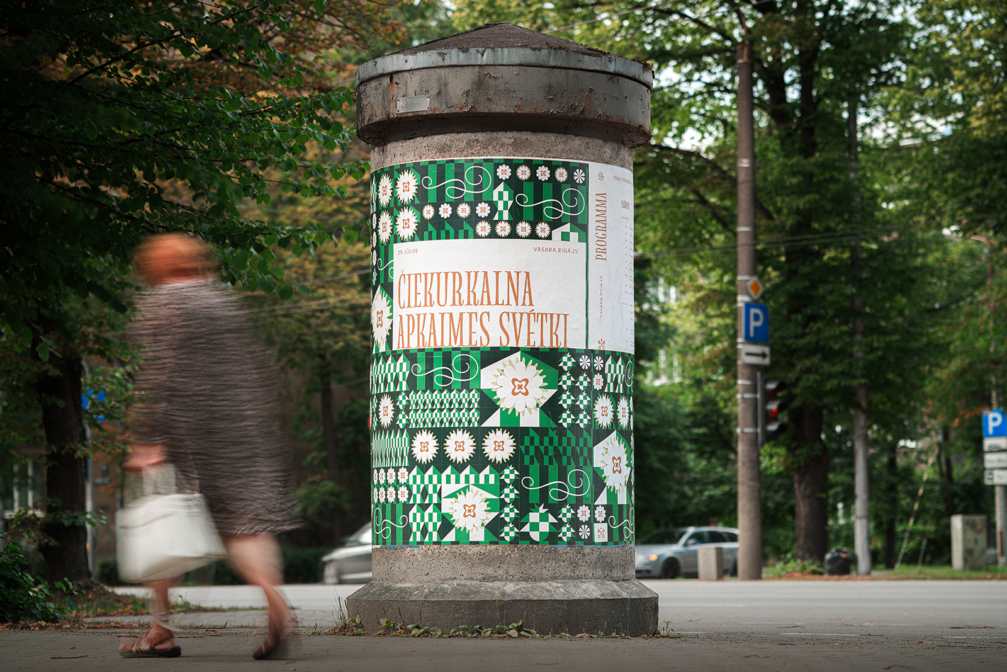
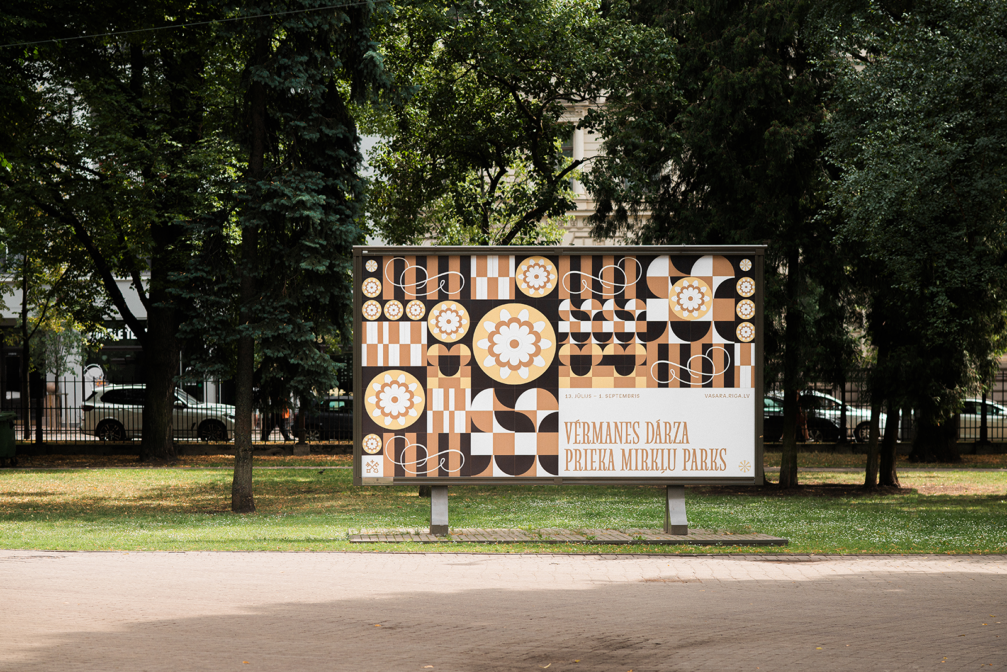
Environmental design
Exhibition Cosmic Dancer
Author — Dace Sūna. Contractor — Design Academy of Eindhoven
«This installation shows how an immersive environment can generate positive feelings around a shared social experience by blending artistic expression with technology. It invites participants to connect through moments of calmness and deeply talks to everybody’s hopes and fears,» said the jury.
Since the first detonation of the atomic bomb in 1945, humanity has entered a nuclear age where we confront not only our personal mortality but also the potential demise of civilisation itself. Cosmic Dancer stands as an immersive installation, beckoning visitors into a contemplative exploration of life’s cyclical journey: from creation, preservation, and destruction to eventual rebirth. Positioned around a central pool of water, participants are drawn to a single droplet, symbolising the elemental particles of existence. Through focused observation of this water droplet’s perpetual journey — its metamorphosis, self-awareness, and navigation through space — the boundaries of individual consciousness dissolve, giving rise to a profound sense of unity with the cosmos.
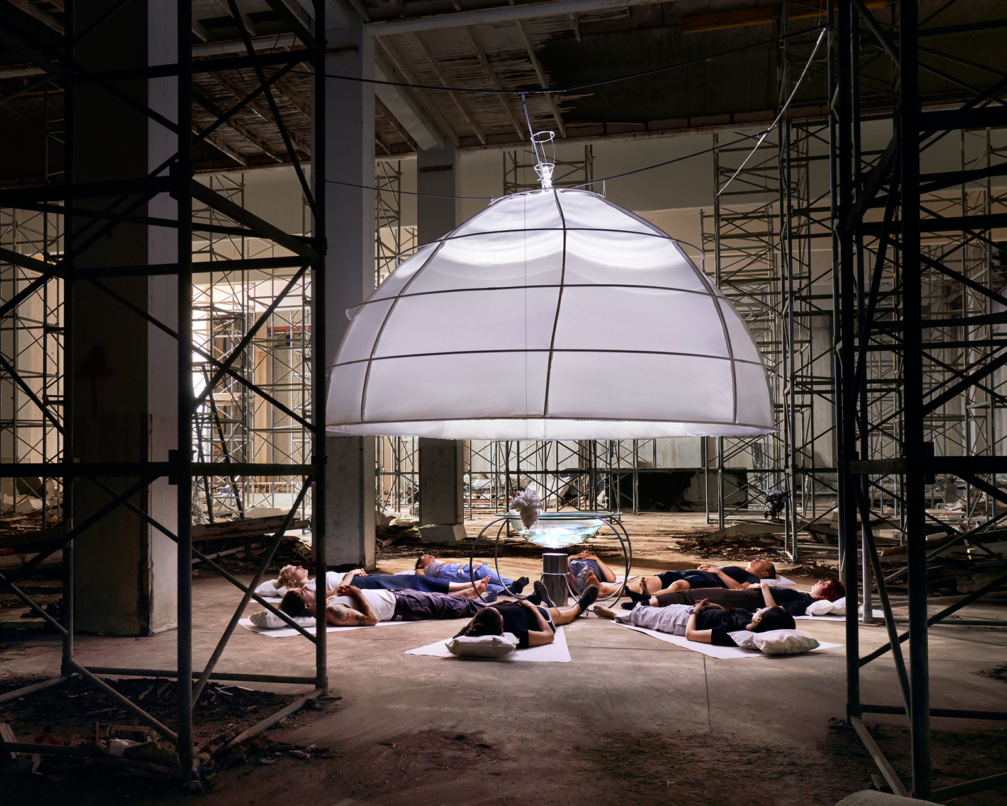
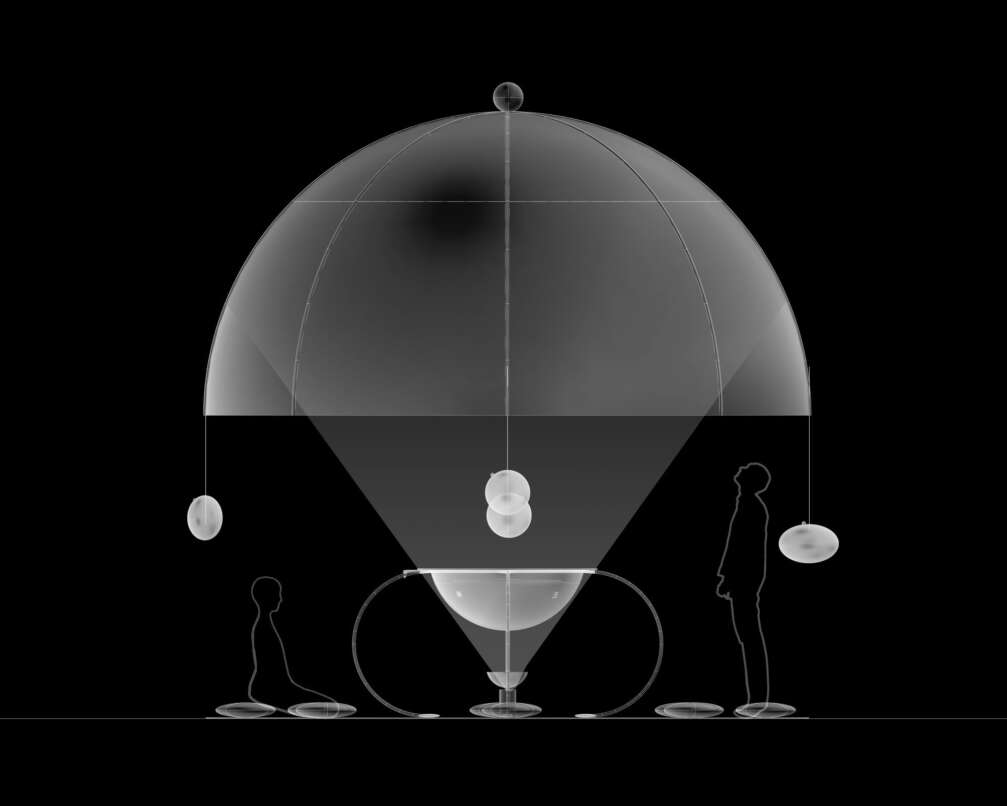
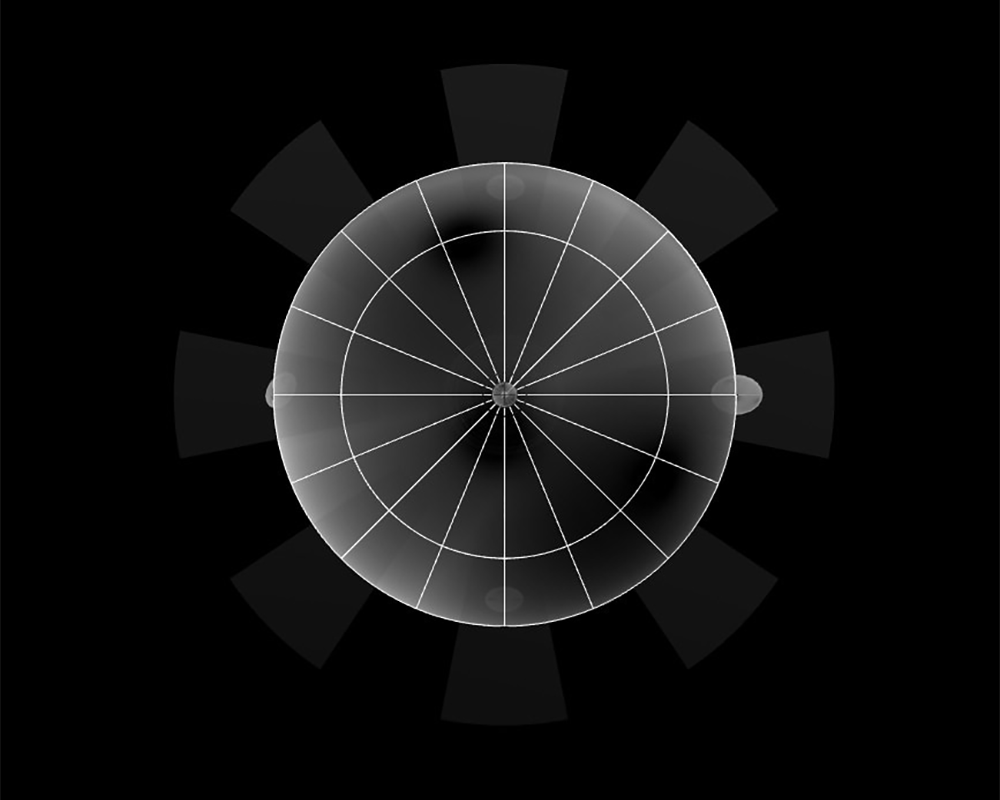
Service design
Design Activism: Interventions for Eco-Social Challenges Summer School of the Art Academy of Latvia
Authors — Rūta Jumīte and Ieva Laube. Contractor — Art Academy of Latvia
«This project provides a future-oriented application of design methods to address the ecological and social challenges we face today. In this project, they have created innovative design methods and combined them with sustainability research. This project has created the space for future actors in the design industry to start from a place of education, creativity, and empowerment,» the jury points out.
In June 2023, the Design Activism: Interventions for Eco-Social Challenges Summer School unfolded at the Design Department of the Art Academy of Latvia and Vidzeme Market. This immersive programme aimed to equip design students with innovative and critical design methodologies crucial in confronting contemporary climate and biodiversity crises. Through a multidisciplinary approach, participants delved into developing interventions that creatively tackled eco-social urban challenges, transcending conventional human-centric perspectives. Read more about the eductaional programme here.
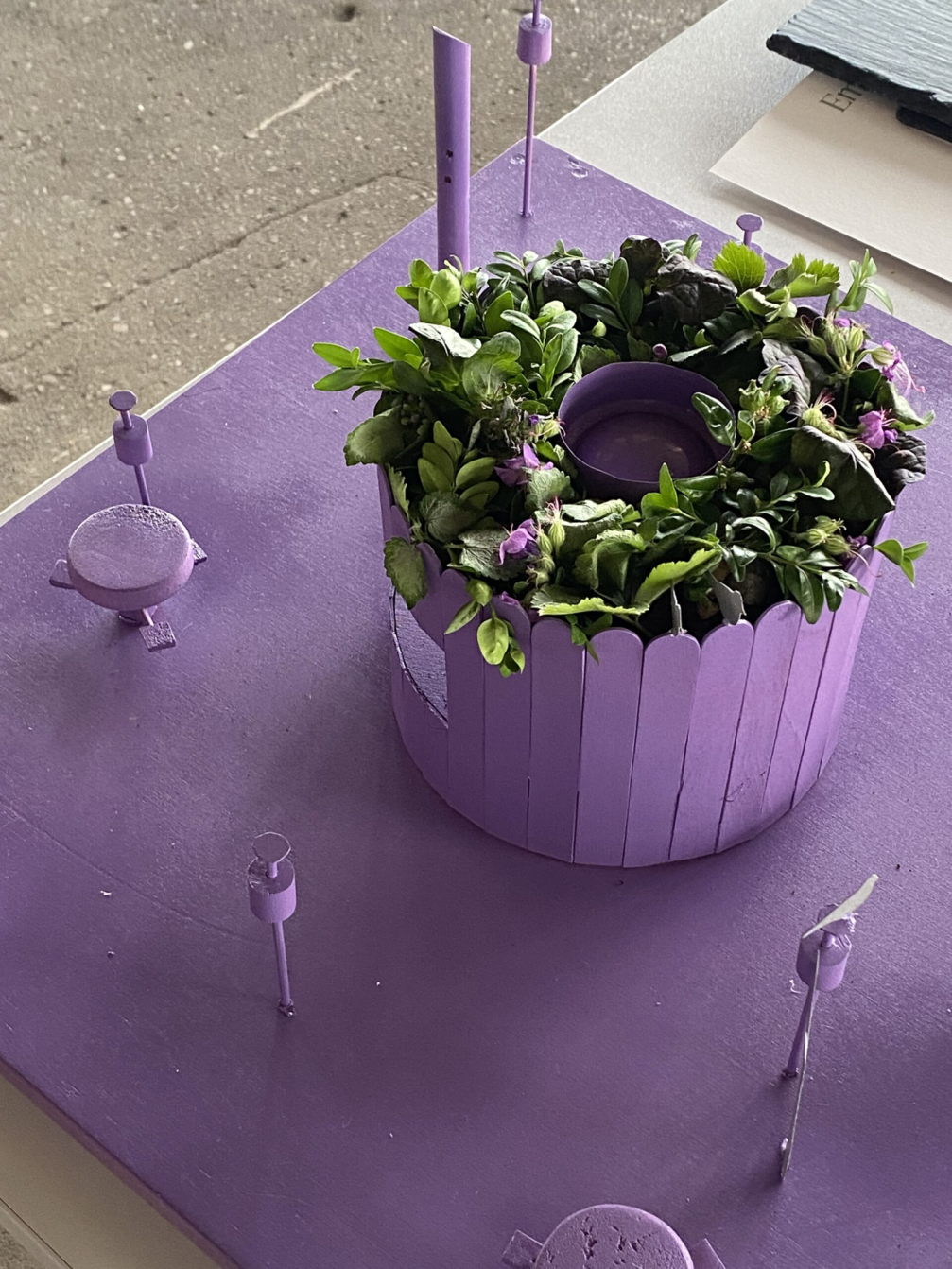
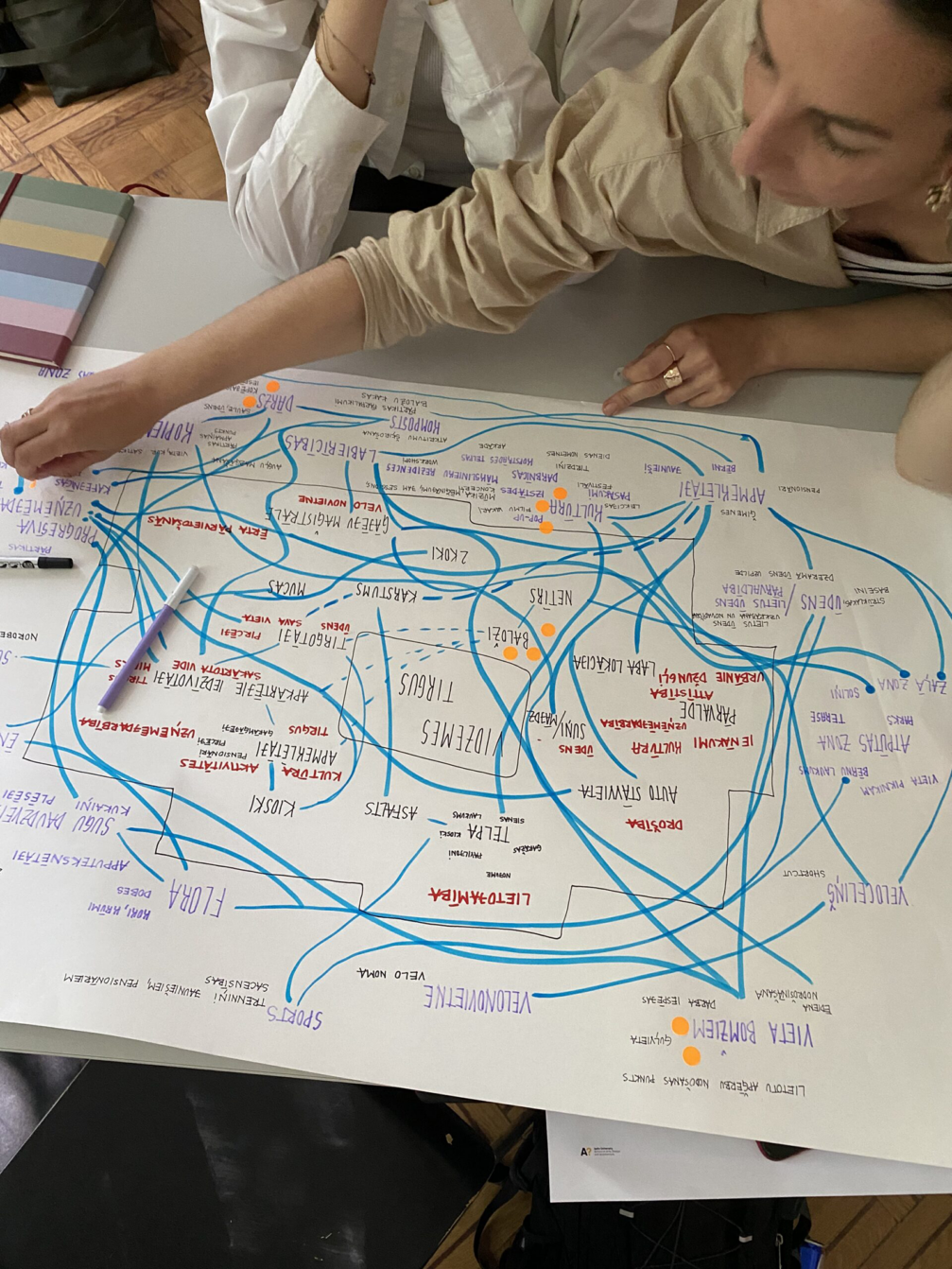
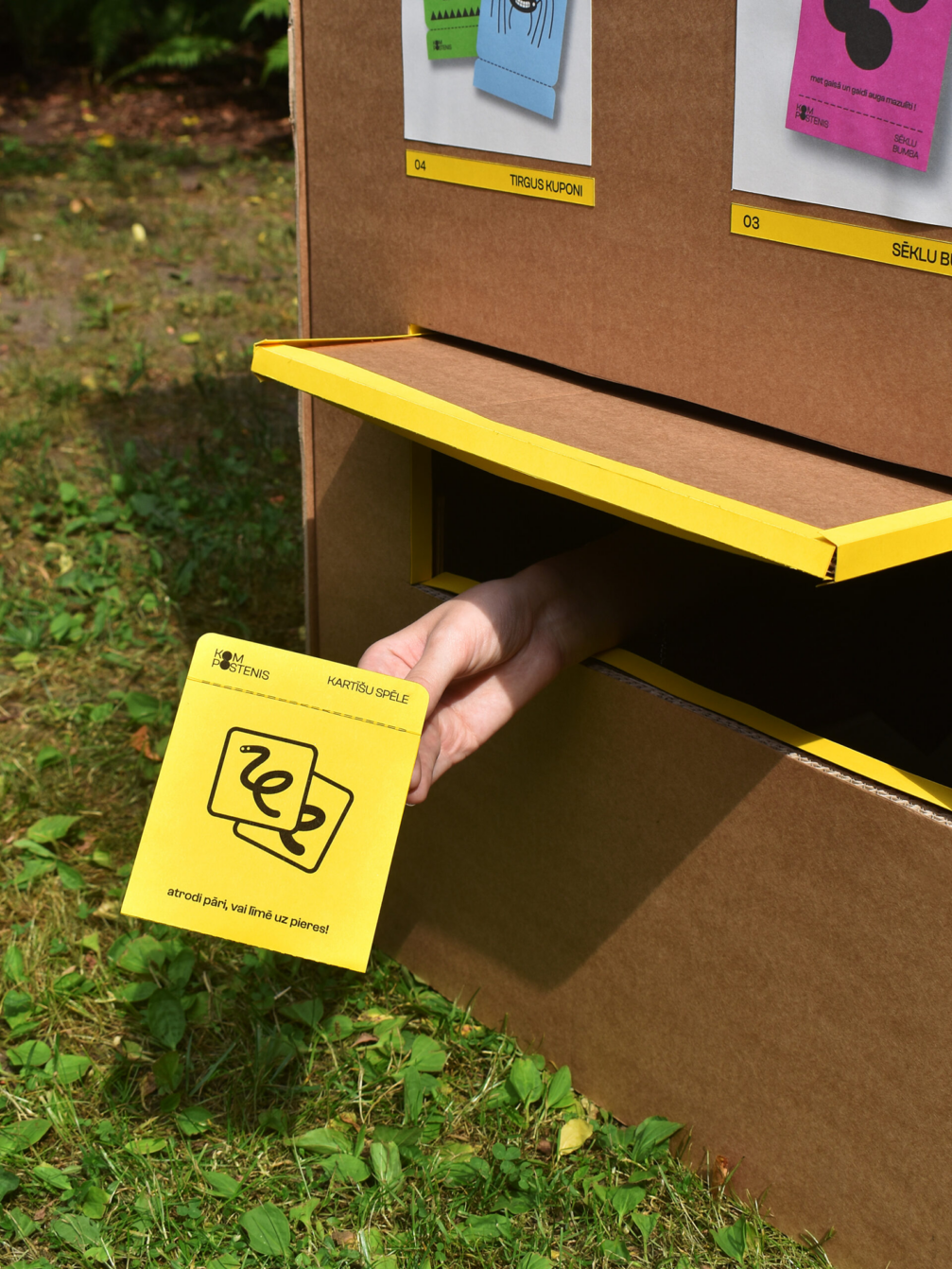
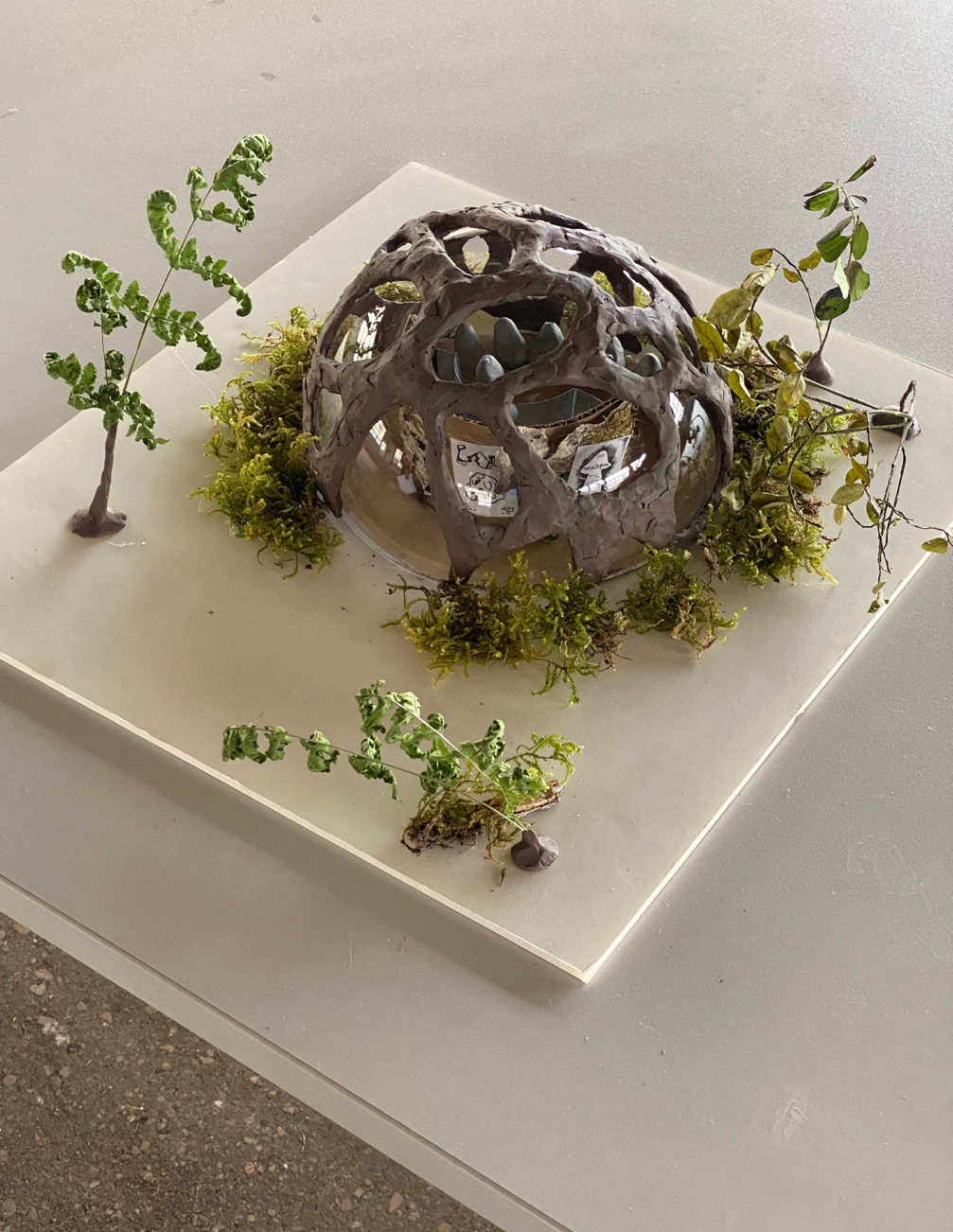
Digital solution design
Digital solution for the Stopify donation streaming platform for Ukraine
Authors and contractors — Māris Upenieks, Mārcis Miķelsons-Germs, Miks Miķelsons
«The project convinced the jury as a prime example of a digital solution by cleverly using an already-established mechanism to raise funds through ongoing subscription services. By adopting the already-learned subscription pattern, this project showed us what design can do — support the change of the world for the better. It is the sustained engagement of the users in combination with the creator’s commitment and willingness to invest emotions, time, and energy for a pressing cause with a still-undetermined end-point. The jury would like to highlight that beyond the well-drafted approach, the transparency through the monthly mailings and ease of uniting behind the cause made this a standout project,» the jury said.
In February 2022, Russia brutally attacked Ukraine. At first, the civilised world was united in support, but as time passed, enthusiasm slowly began to wane — it became clear that the war would not end soon. So in their spare time, three friends working in communications started thinking: What could we do about it? They came up with a very simple idea. Nowadays, we subscribe to various streaming services to watch TV series and films for a monthly sum equal to the cost of a couple of coffee cups. What if you could subscribe to something more important? The security, freedom, and future of Ukraine and, by extension, of ourselves? Meet Stopify. A platform that allows you to «stream» a small monthly donation to help the Ukrainian army end this war sooner. Visually, it looks like a typical streaming service, but instead of watching TV series, you can learn about the equipment needed by the Ukrainian army and make a decision to donate. Read more about Stopify here.
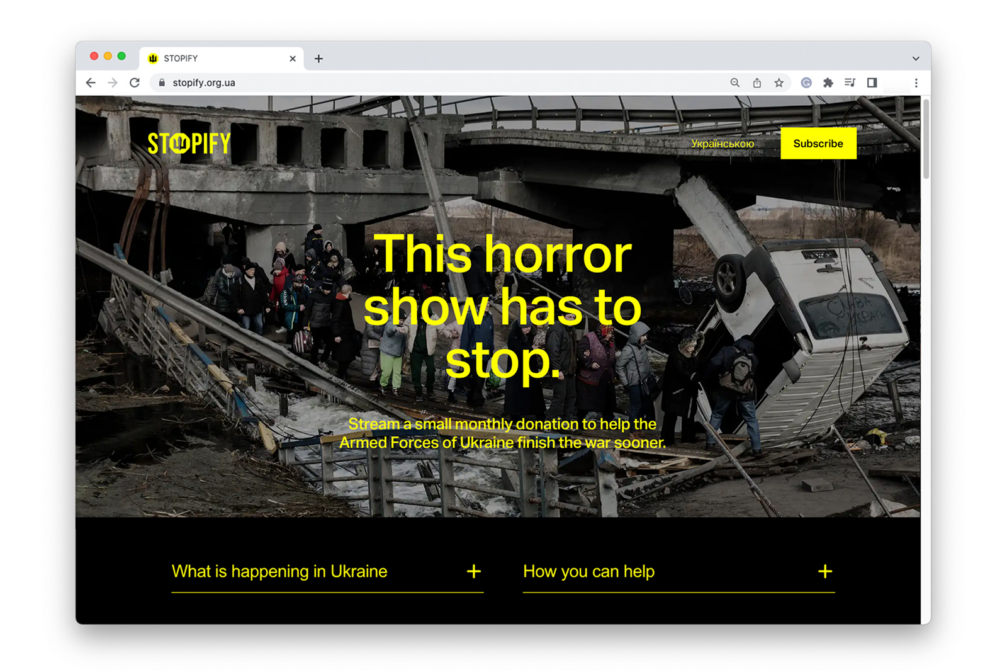

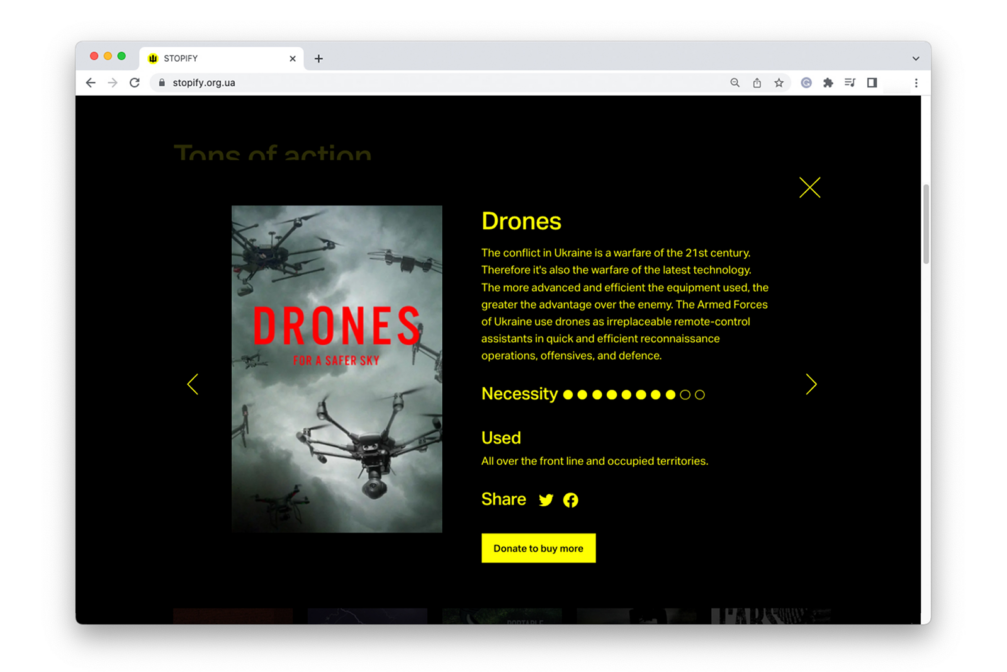
Jury’s Special Recognition
Product design
Electric scooter Bee Electric
Author and contractor — Aldis Kalniņš.
Be Electric is a simple, comfortable, and silent moped powered by an electric motor, comparable to a bicycle. The frame of the moped is made of curved metal tubes and complemented with plywood parts, which is a popular material for the design of various products in Latvia. The position of the battery behind the handlebars, where regular mopeds have a fuel tank, evokes the sentiment of childhood mopeds in the countryside or in a suburban garage. However, the moped is equipped with the latest generation battery, a powerful and quiet electric motor, and running gear components that are built for long and intensive use in a wide range of conditions. The Bee Electric’s combination of geometry, speed, and mass gives a feeling of accessibility, safety, and predictability to riders of all ages and experience levels, while its design is modern, minimal, and concise. Bee Electric enables cycling on routes designed for bicycles, can be carried on public transport, and, if necessary, can be placed in the boot of a car or bus.
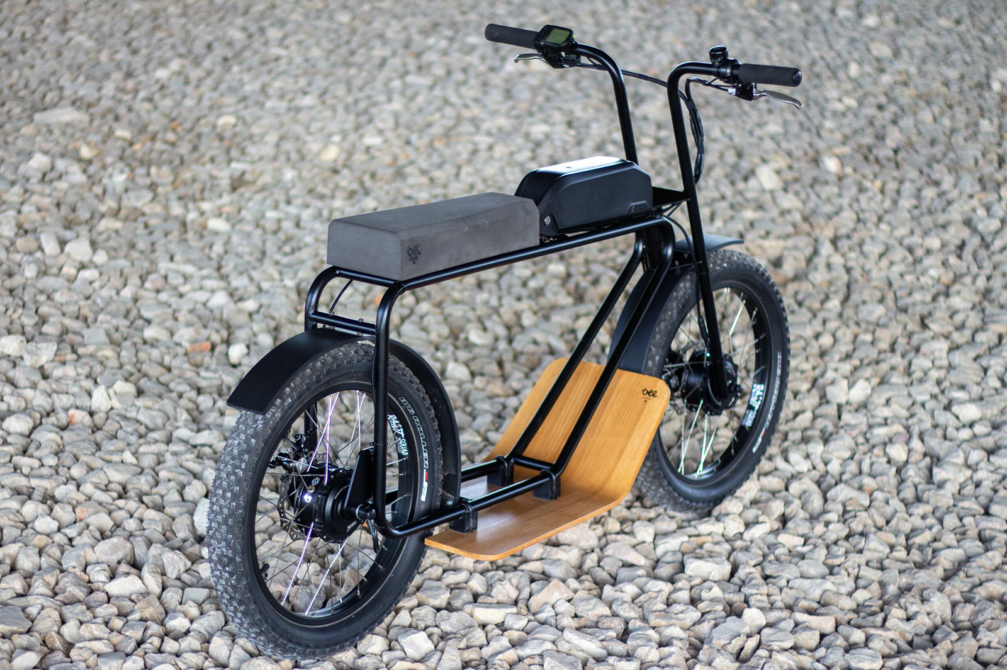
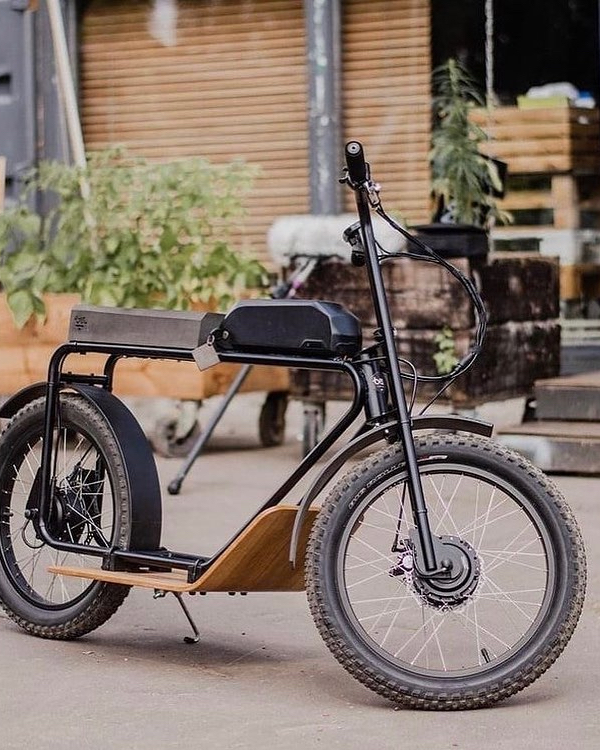
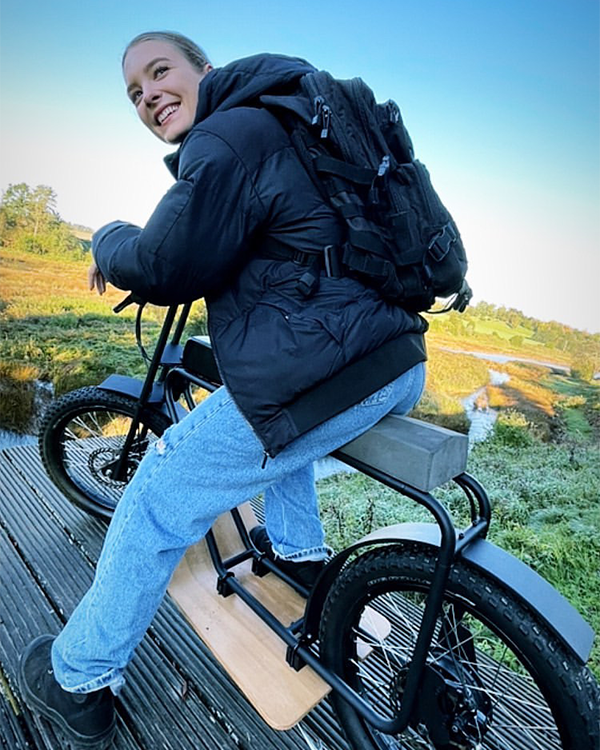
Communication design
When War Becomes Personal book
Author — Gatis Šulcs. Contractor — Juris Alberts Ulmanis.
Latvian serviceman and mountaineer Juris Alberts Ulmanis’ book When War Becomes Personal collects 26 stories about his experiences while delivering equipment and helping Ukrainian soldiers. Expressive illustrations enhance the message of each story, and the design of the book is rough and laconic, in tune with the harsh realities of war. Read more about the book here.
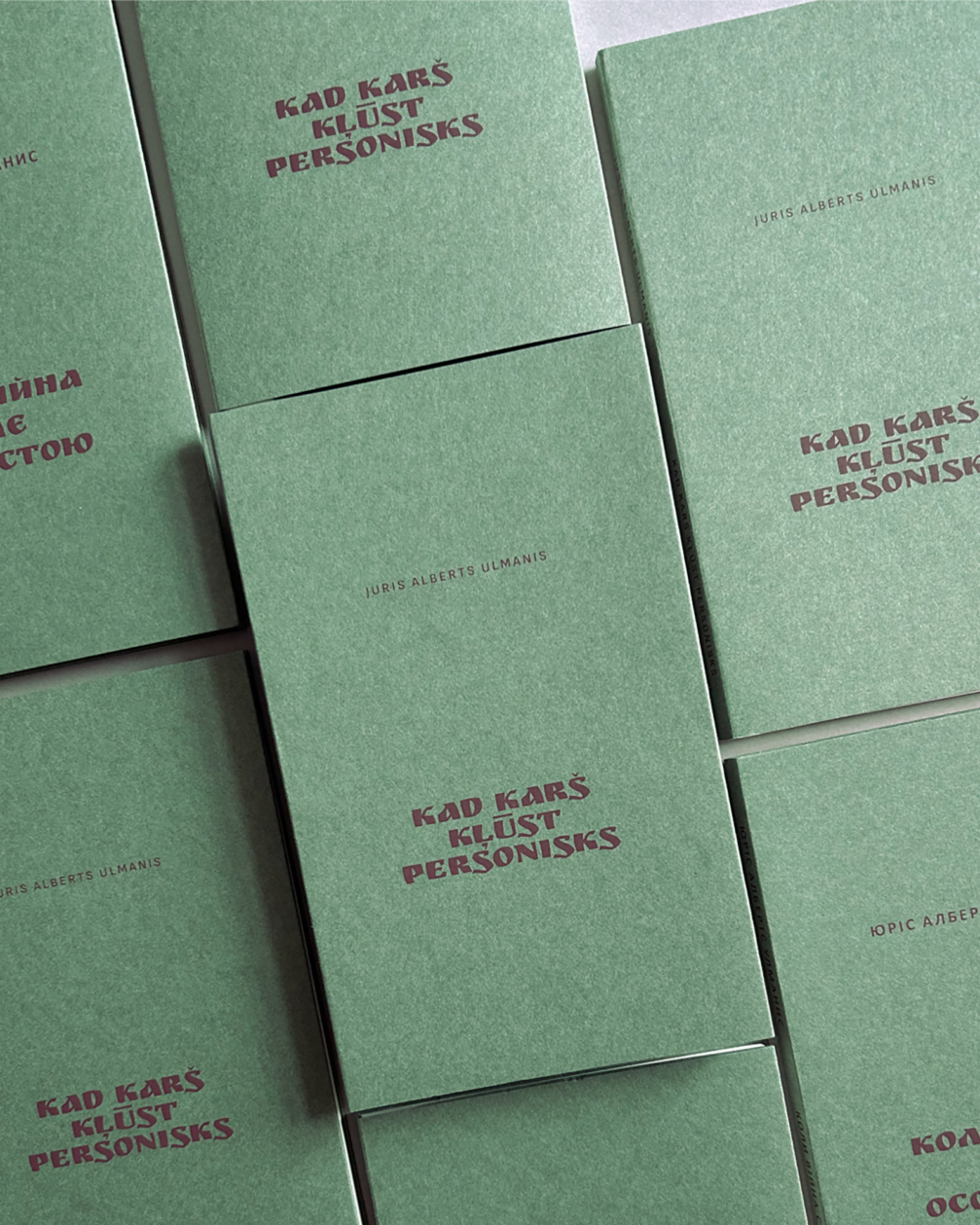
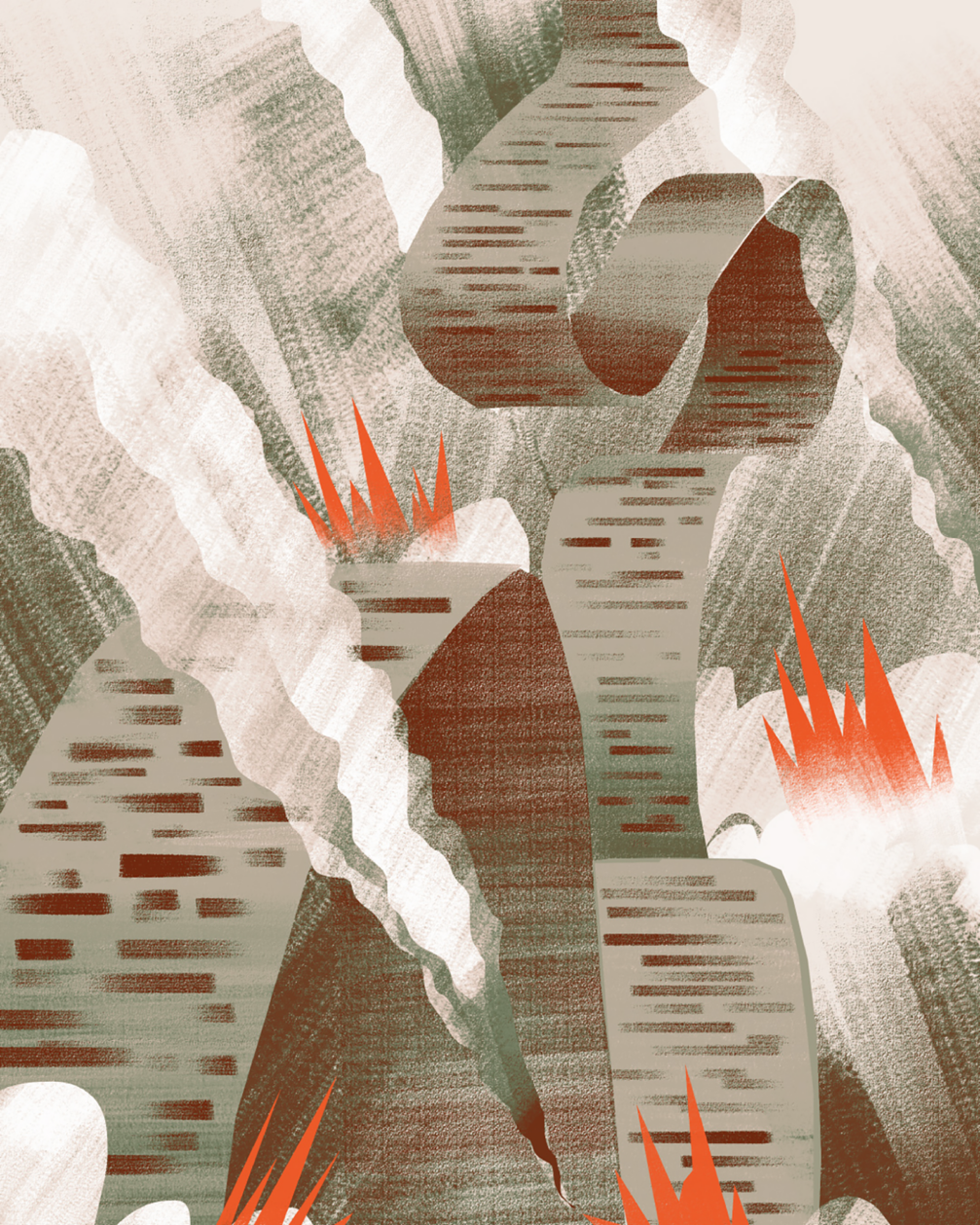
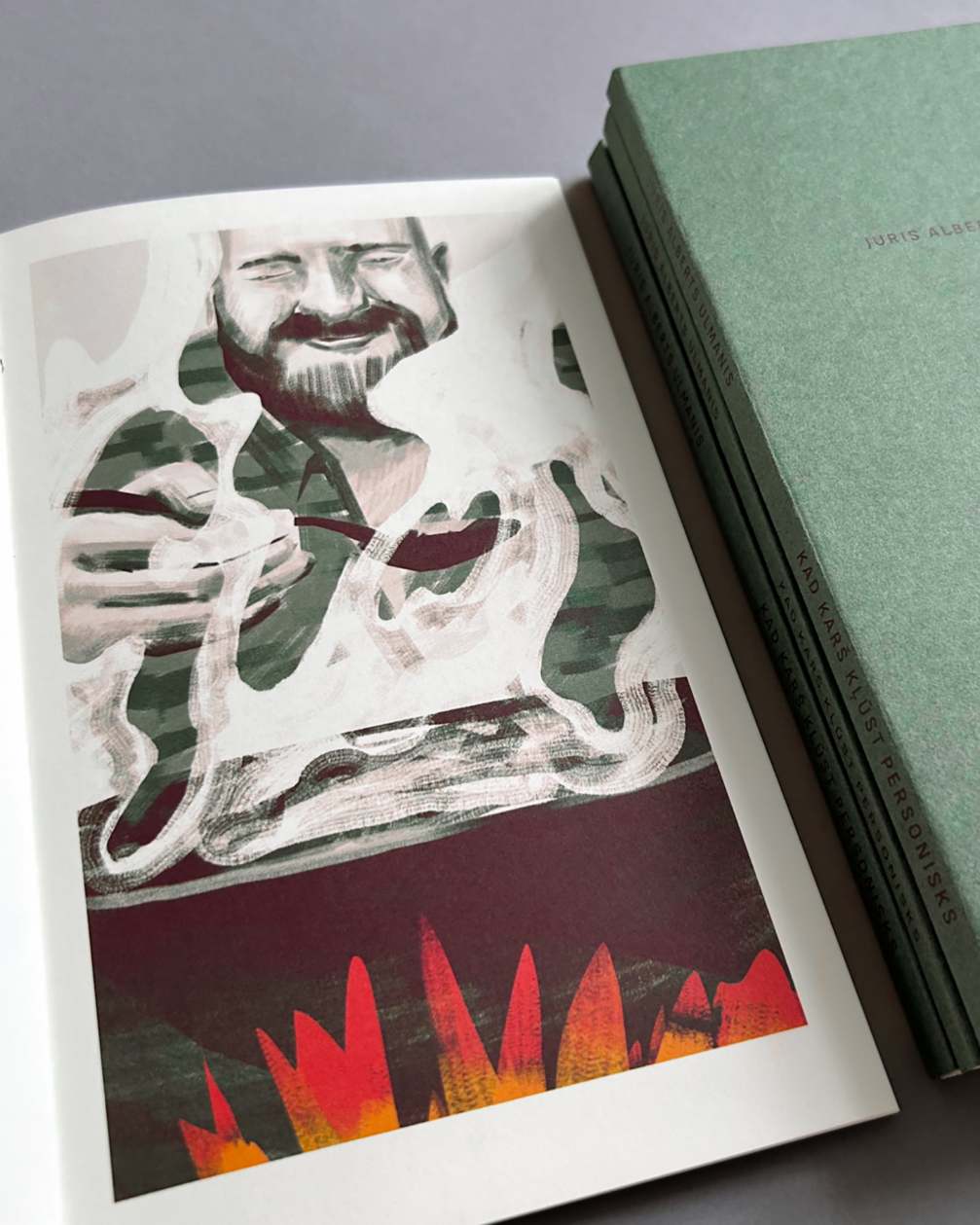
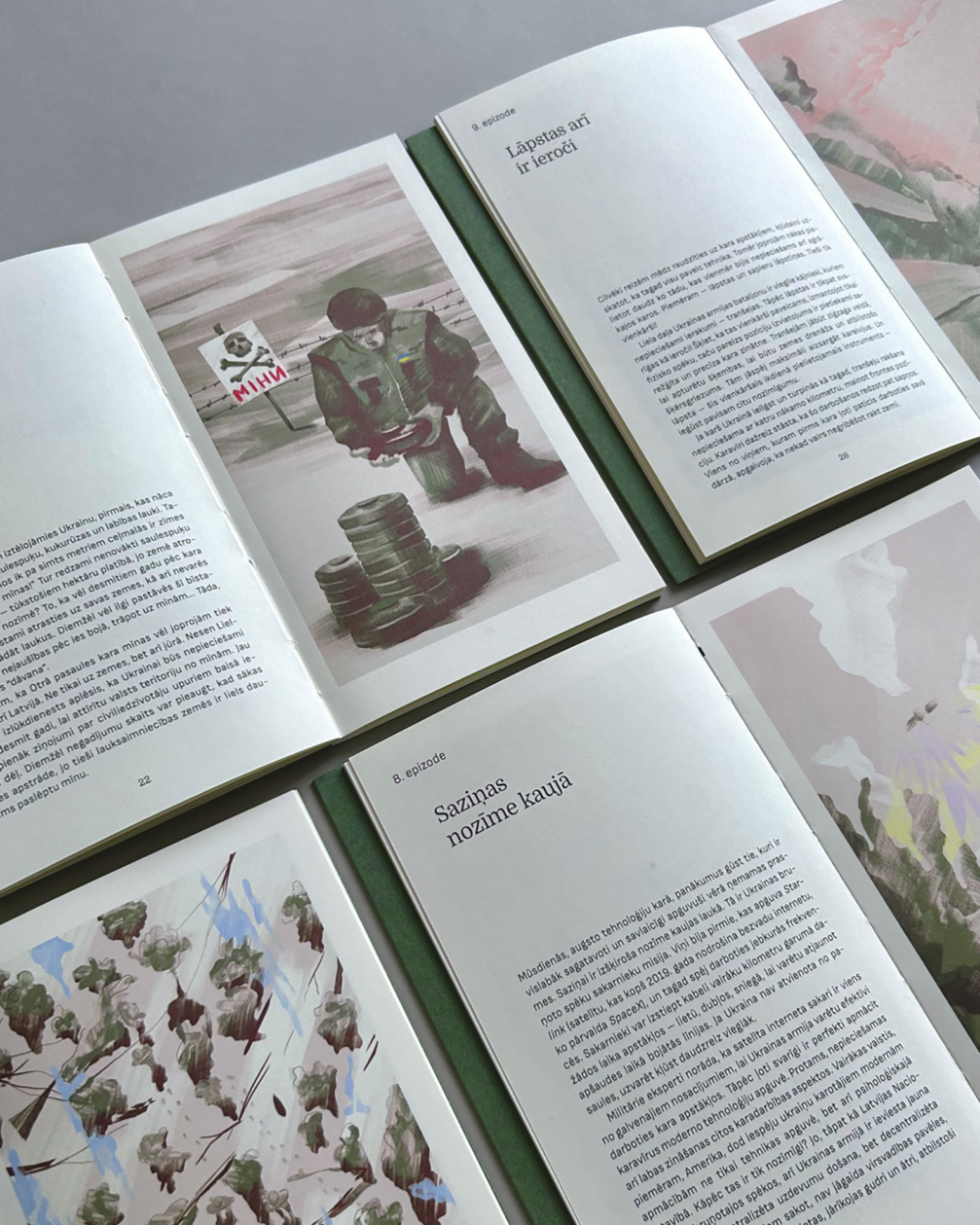
Riga Pride 2023 — Bloom campaign
Author — Artūrs Meļņiks and Māra Čaure. Contractor — Mozaīka.
Riga Pride aimed to create vibrant, festive, welcoming, and inclusive communication, reflecting Pride’s evolution from a protest to a celebration of diversity. Flowers have played a significant role in the history of the LGBTQIA+ community since the 6th century BC, when the ancient Greek writer Sappho wrote a poem to her lover, associating her with violets. Throughout history, the community has often resorted to covert methods of communication to connect with others like themselves. Drawing inspiration from the Victorian secret language of flowers, the concept illuminates the history of community and clandestine communication methods, fostering educational and inclusive communication that celebrates the diversity within our society.
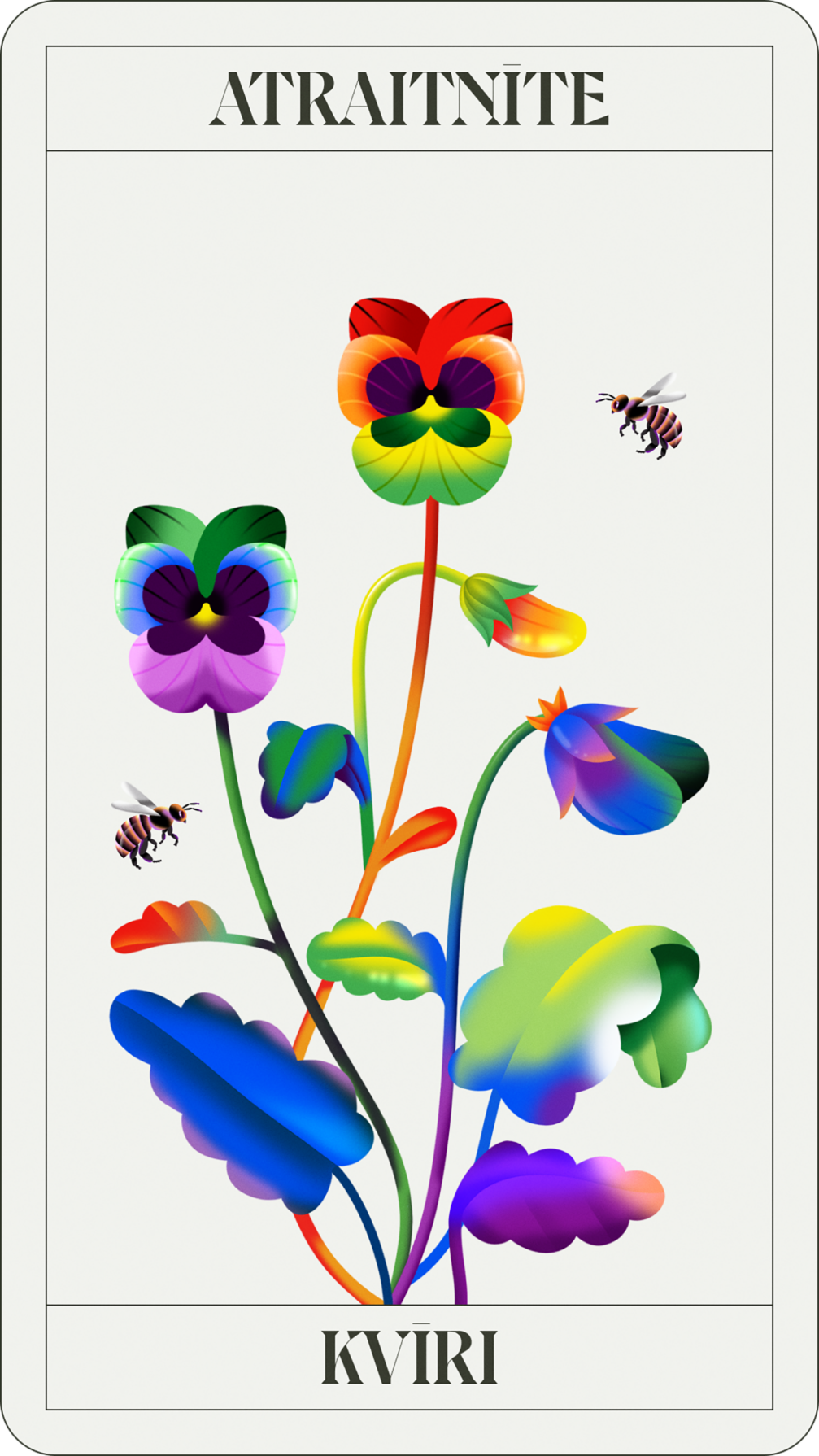
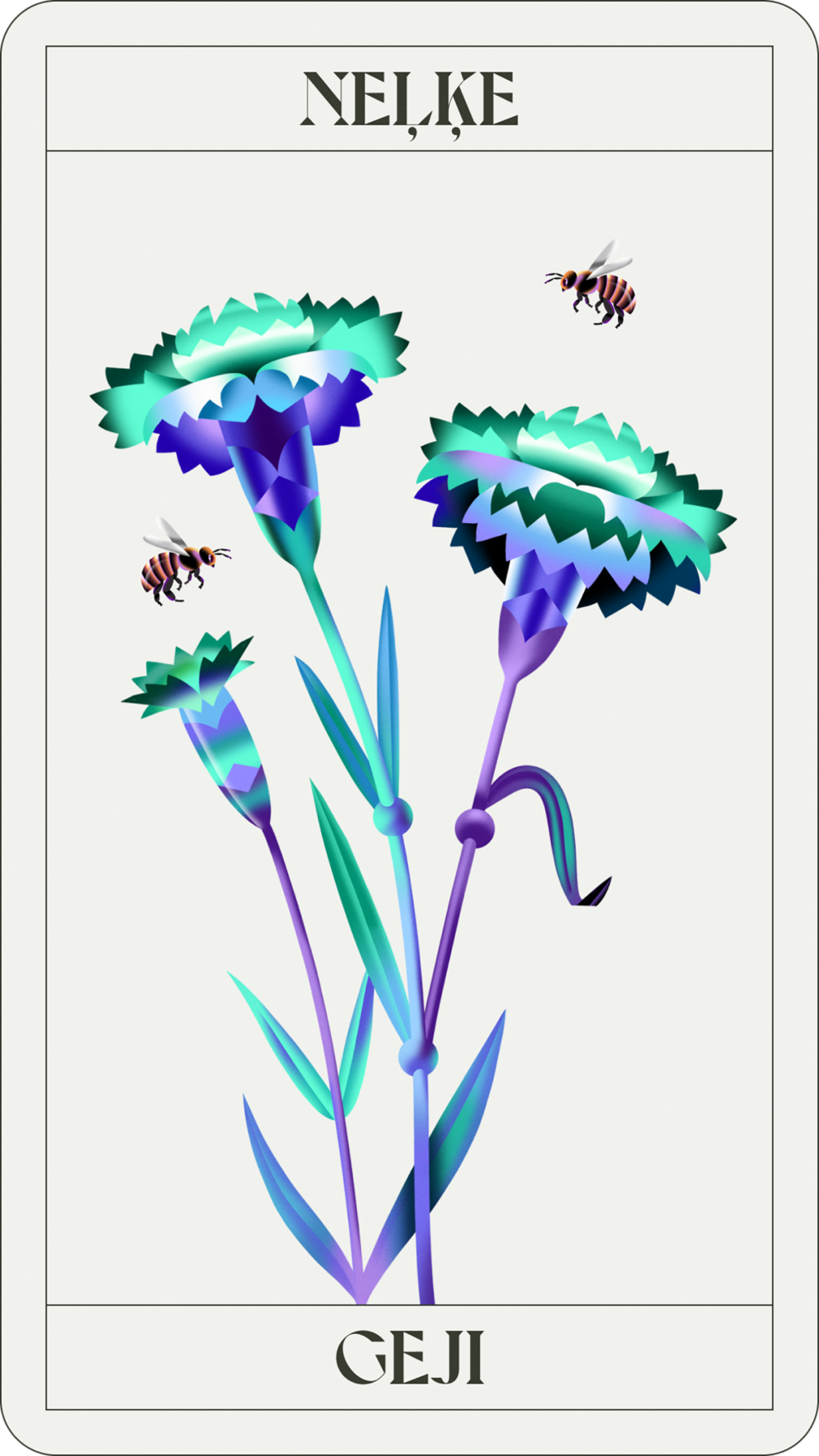
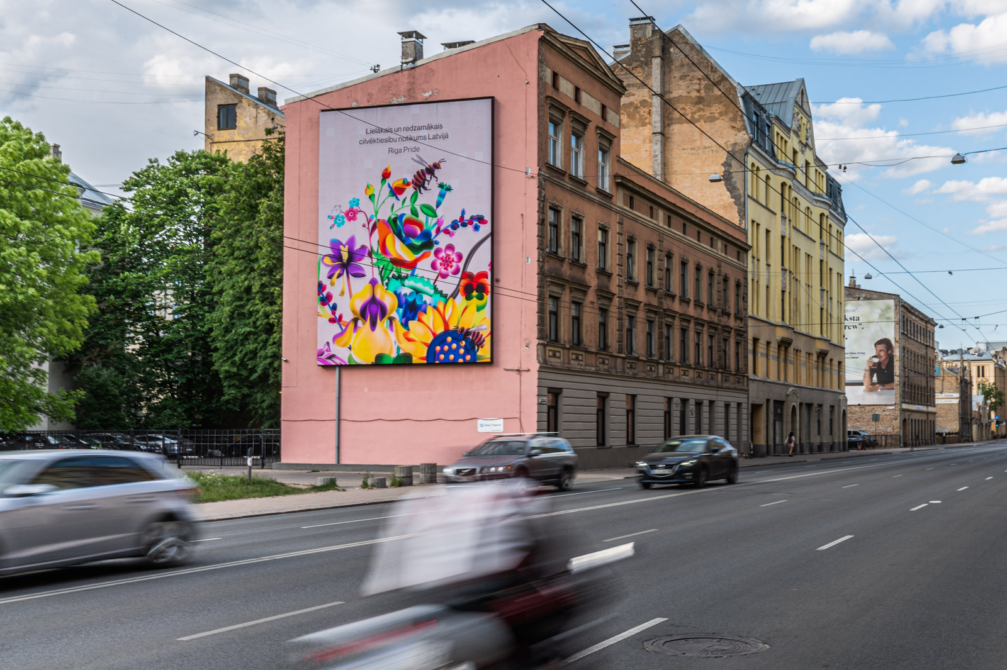
Environmental design
Dailes Theatre Square
Authors — MADE Architects in collaboration with Evelīna Ozola and Edgars Zvirgzdiņš. Contractor — State Real Estate, Riga City Council Property Department.
The redevelopment of the Dailes Theatre Square marks a transformative shift in priorities for this public space, prioritising pedestrian comfort and well-being above all else. While preserving the architectural composition, landscaping principles, and materials that reflect the theatre’s modernist spirit, the project introduces a new strategy for pedestrian movement and leisure. The aim is to create an environment that is accessible and safe for all by eliminating unnecessary obstacles and steps, increasing greenery, enhancing nighttime lighting, implementing sustainable rainwater drainage systems, and improving the visual communication of the theatre within the urban landscape. Read more about the project here.
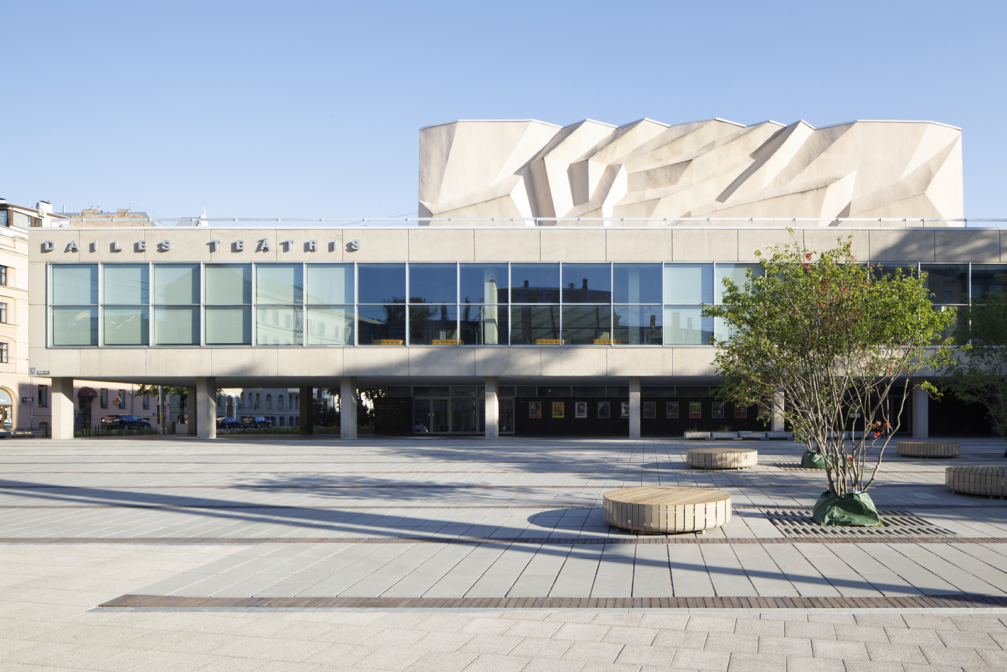
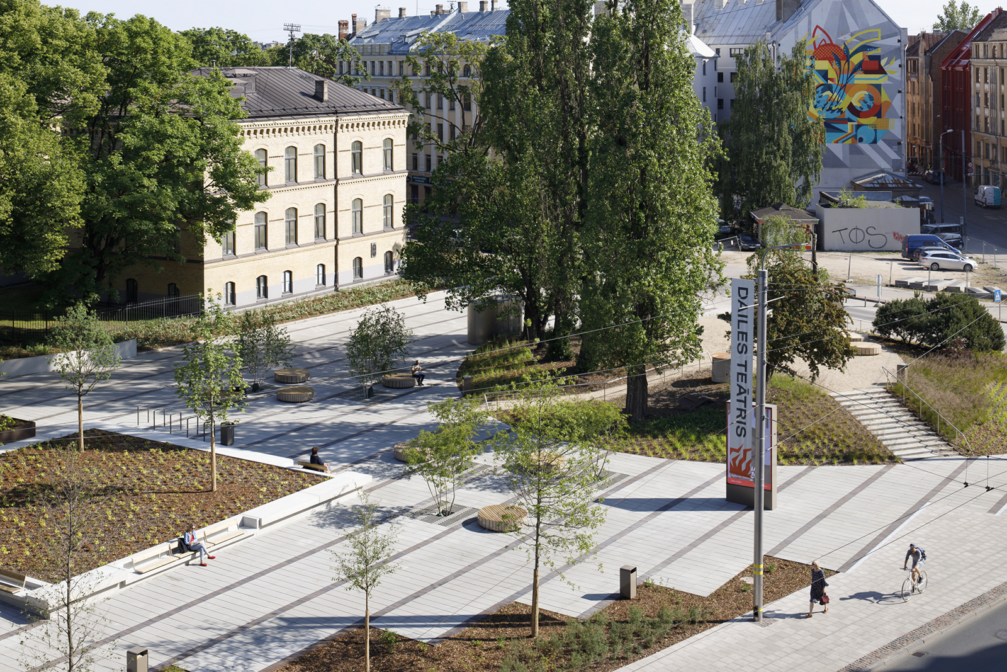
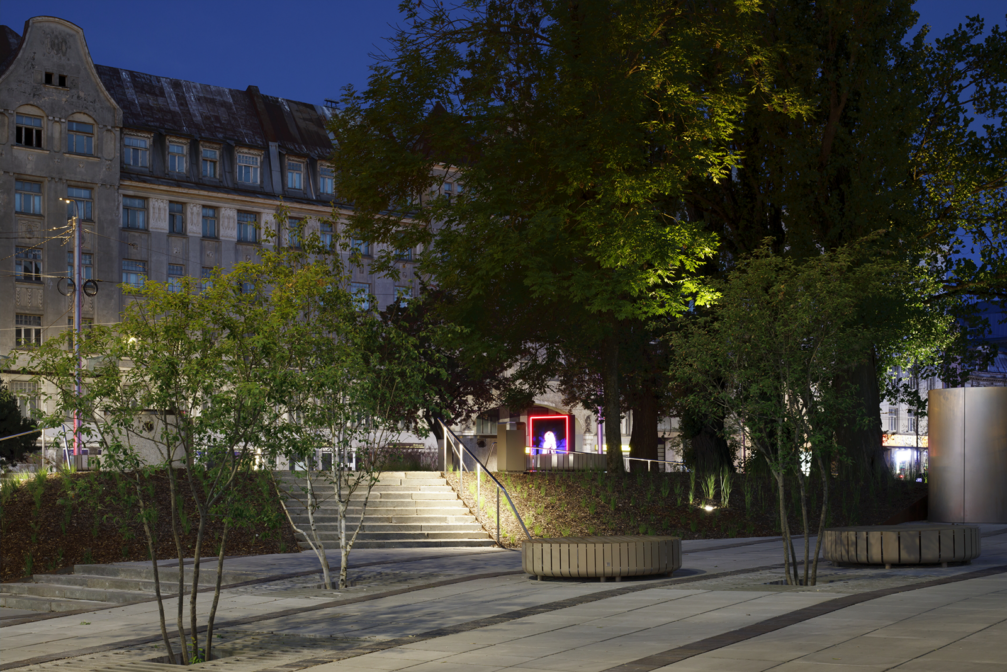
Service design
Hurricane simulator attraction Beat the Storm
Author of the idea — Ingus Augstkalns, project manager — Rihards Dziedātājs, designer — WeMPS, main artist — Kristians Rukuts, architect — Līva Kalniņa. Contractor — Universe Science Park, Denmark.
Beat the Storm is a unique attraction designed for fun and education — visitors can experience winds up to the strength of a Category 2 hurricane (165 km/h) in a safe environment. Through the joy of discovery and play, Beat the Storm stimulates interest in science and physics. This adventure is made possible by recirculating tunnel technology, which directs a controlled flow of air. Beat the Storm is suitable for amusement parks, science parks, and museums for both indoor and outdoor installations. The first two simulators have been installed at the Universe Science Park in Denmark. The double version of the wind tunnel can handle four people at the same time, with a throughput of up to 300 people per hour.
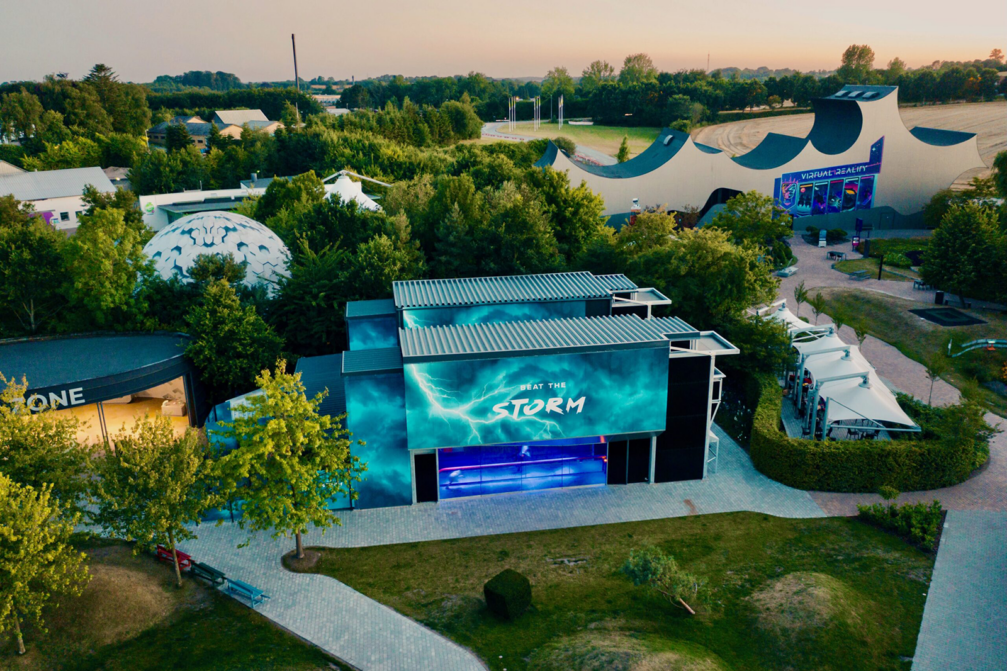
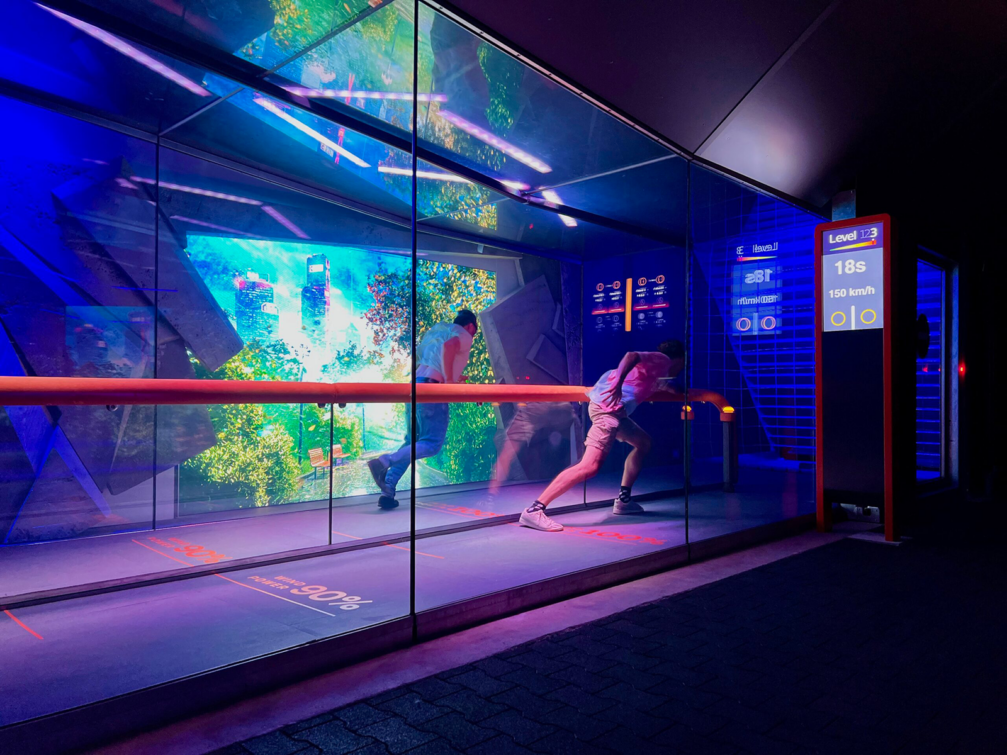
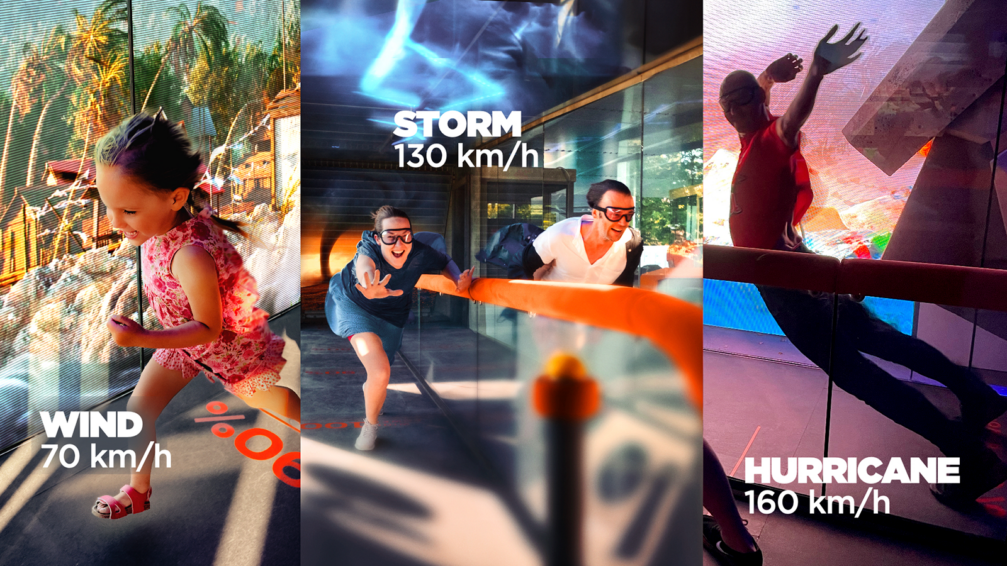
The special prize of the Patent Office went to the electric scooter Bee Electric. The prize includes advisory support to better protect the intellectual property of the winning design or company. The winner will also have the unique opportunity to attend the DesignEuropa Awards ceremony in Riga on September 25, one of the most prestigious intellectual property events in the European Union. With this award, the Patent Office wants to raise awareness among design professionals about intellectual property protection as well as promote the long-term development of the Latvian design industry, including the wider use of design in business and the public sector, thus strengthening cooperation between the two fields and the commercialisation of the best solutions. Designers can use their creativity to find practical and simple solutions to complex problems, making our everyday lives easier and more comfortable. These solutions are proof that design is clearly linked to innovation and competitiveness.
A total of 127 entries were submitted for the National Design Award of Latvia 2024, out of which the selection jury nominated 58 entries for the second round of the competition, which were evaluated in intense discussions by the members of the final jury, who met in person on May 21 and 22 in Riga. The final jury members were five experienced design professionals. Alongside Latvian representatives, the entries were judged by two international experts:
- Regina Hanke (Berlin, Germany) — professor in communication design and design management, co-founder of LEILA, Germany’s leading medical information and decision support app, member of the BEDA Board;
- Maria Azzurra Rossi (Rome, Italy) — designer and architect, co-founder of PR and communication agency Mint List;
- Ieva Zībārte — architect and author, New European Bauhaus expert, Head of the Development and Construction Project Management Department of the municipal capital company Rīgas Nami;
- Edgars Zvirgzdiņš — designer, founder of design studio Associates, Partners et Sons and co-founder of loudspeaker brand Aretai;
- Dārta Apsīte — communication designer and creative director.
The final jury evaluated the entries according to the evaluation criteria defined in the competition rules:
- originality and novelty;
- setting of the problem and conformity of solutions to the work task;
- co-creation, stakeholder involvement and cooperation in the work process;
- functionality and technological solution;
- aesthetics and other dimensions of quality of experience;
- economic importance, sustainability and circularity;
- social relevance, inclusion, availability and accessibility.
The National Design Award of Latvia is the highest recognition in the field of design in Latvia. The purpose of the award is to identify, evaluate, and promote the best achievements of Latvian designers, advance the use of design created in Latvia, and develop the Latvian design industry. The National Design Award of Latvia was established in 2017 with the support of the Ministry of Culture. Until May 2025, the organisation of the award ceremony lies with the Latvian Design Centre.
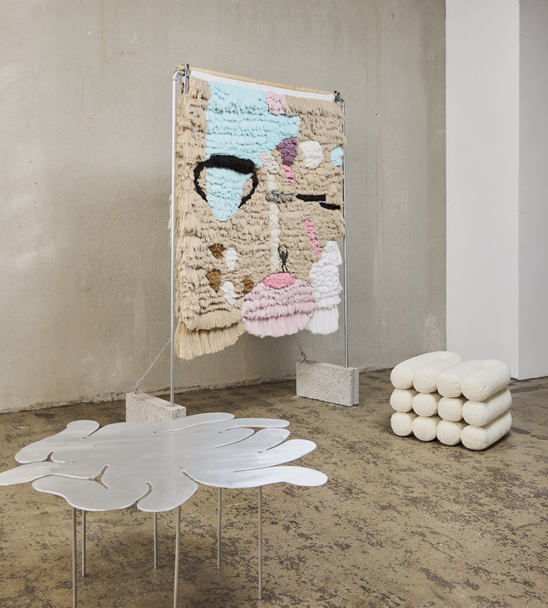
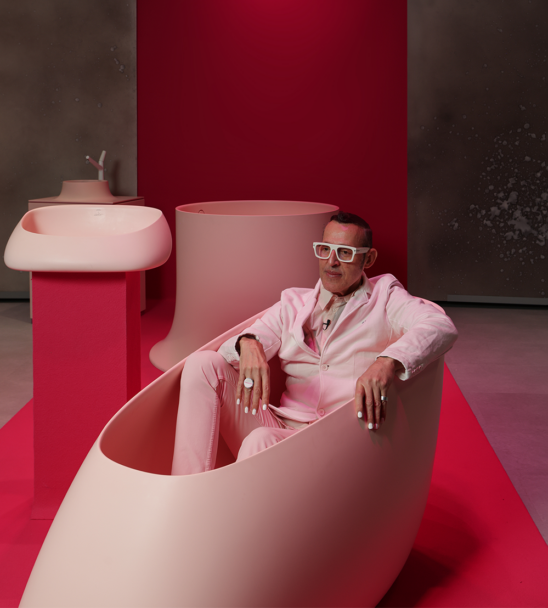
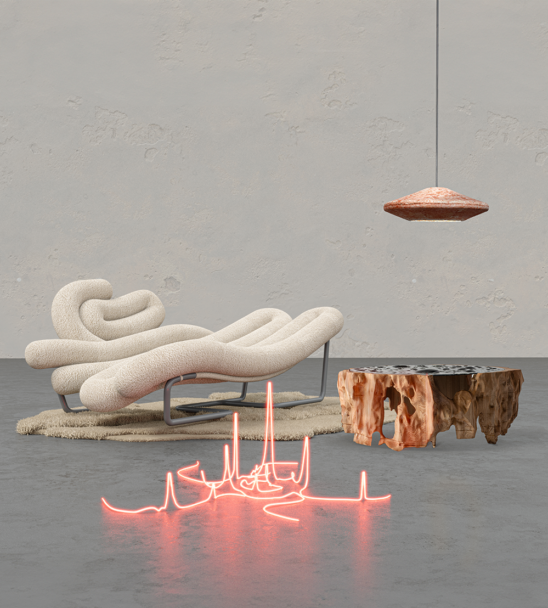
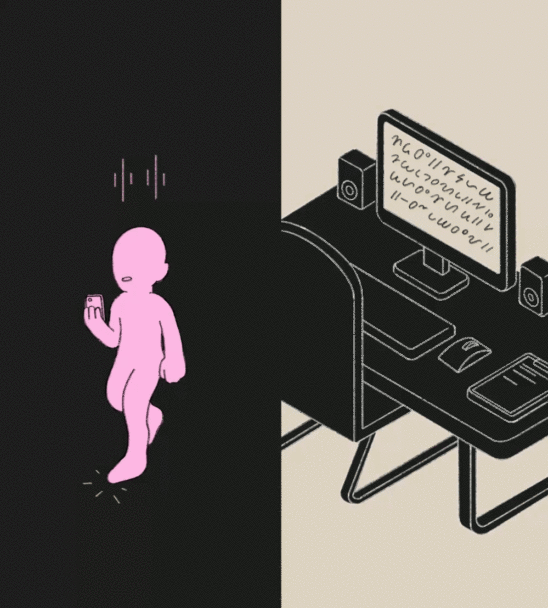
Viedokļi